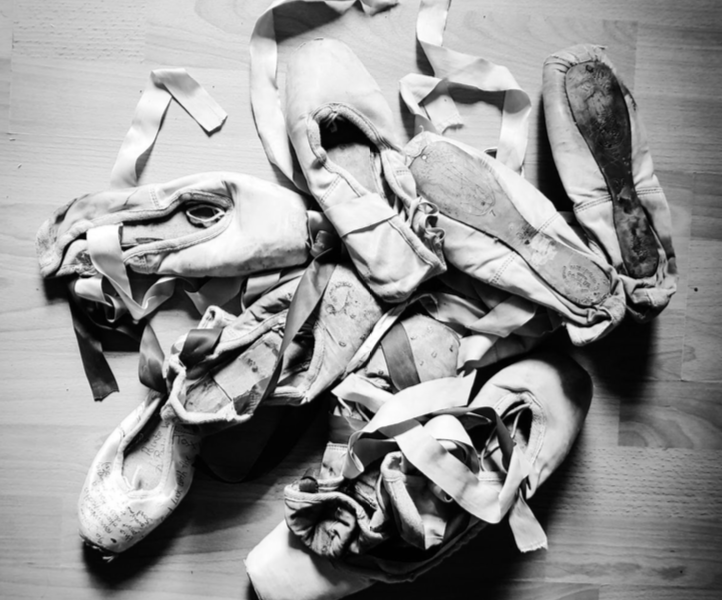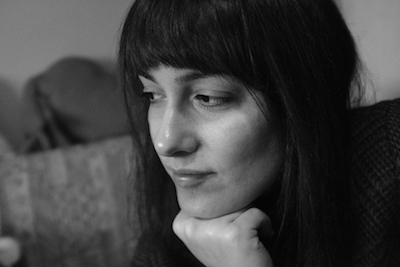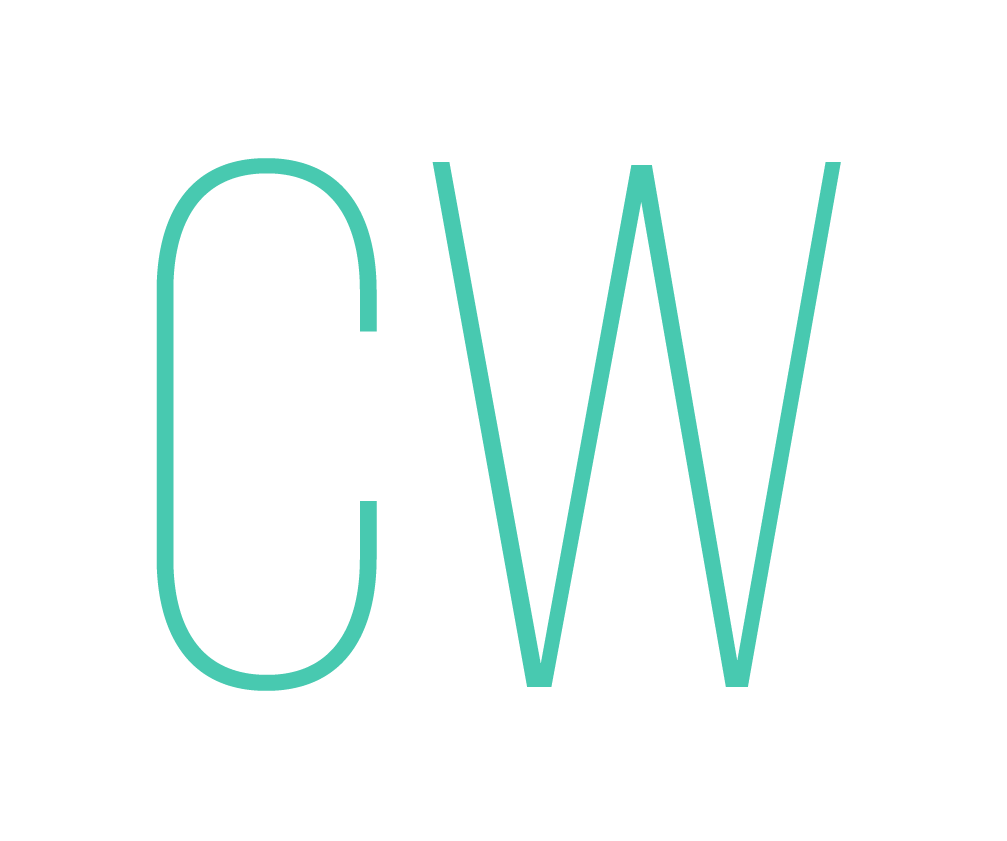My Lunch Break Dream by Valentina Gaia Lops

Sometimes, on my lunch break, I talk to myself.
Today I’ve told chairs and flowers about this piece of writing I’ve been working on. Fourteen tabs open, each page a different side of me. Incomprehensible sentences scribbled on restaurant receipts, time-worn notebooks and coffee cups. Impressions of words that have inhabited the palm of my left hand for less than 24 hours, slowly vanishing from my skin after my morning shower before I could even catch them, leaving me with just a sense of them.
I sit still, looking in one direction, but not really looking at anything. I’ve crossed the portal of imagination, I am transported into another dimension, standing in the middle of old train rails crossing vast, empty lands. I’m waiting for my train, but I don’t know when it will come, nor where it will take me. What I know is that the clock is ticking, for I must come back to reality and resume my daily activities before my lunch break ends.
I hate working under pressure, I vent out loud, staring at the boiling kettle in front of me. He seems to mumble in agreement while I open my fifteenth tab. The valley of my daydream is deserted, not a soul in sight, not a single sound. I don’t have a choice but to summon past stories, accessing a third dimension: a daydreaming sub-dream.
I’m suddenly back to my first steps in a dance studio, but it’s not as romantic as it sounds. Here I am, a sturdy gymnast, recently retired from a competitive career for lack of talent, after breaking my instructor’s arm while learning a backwards flip.
You should try dancing.
You are very imaginative, were my coach’s last words to me, just before I waved goodbye to my club.
This memory guides me to the very first dance studio I ever saw. It had a name: Sala Rossa. It was a bright red box of a room with golden barres and pictures of famous ballerinas hanging on the walls. All very anxiety-inducing for my likes. I’m surrounded by slim, beautiful girls walking like elegant cats, holding onto the barre for balance in ways that seem effortless to me. It looks like an invisible force is pulling their perfectly tidy heads up to the sky, and their venous feet down below the ground, while they move like an army of sophisticated soldiers in pink shoes. Is this where the imaginative movers end up? I whisper to myself while I hesitantly find my place at the barre. I can’t help but noticing that my body looks very different from everyone else’s. I am thirteen years old and I move roughly. My hair is collected in a low, messy ponytail and I’m barefooted, wearing black. Enormous breasts have recently burst out of my chest against my will and desire, fueling a growing sense of non-belonging to such delicate scene.
My train has finally arrived. I take a seat and let myself sink deeper into my sub-dream, while I watch memories passing me by as fast as the wind outside my window. This journey takes me to my frightening dark years. The years that had me holding on to ballet barres and rehabilitation centres more than life itself. Images of Sister Narcisa, an old Italian nun who devoted her life to God and medicine, put a smile on my face. I close my eyes so I can hear her voice:
Dance for me, Valentina, she asked every morning after waking every patient up with her loud prayers.
I was never a religious person, but Sister Narcisa was more than a nun, and more than a nurse: she was a dispenser of love and affection we all longed for, while intermittently shifting from sanity into the abyss of madness and despair. She would visit me in Room 307, the room I shared with an anorexic lawyer in her thirties. I would wear my ballet shoes and perform a secret ten-minute dance for her, while everyone else was getting ready to fight the breakfast monsters. We were all on forced rest, for our bodies could not sustain any form of physical activity that wasn’t essential. Expressing my emotions with the very same body I was disappearing into was essential for me at the time, and Sister Narcisa understood how my mind worked. The morning dance was our little secret, and my regular small dose of naturally produced joy for as long as life had me in that place.
I can feel my train decelerating. I realize it will soon approach a stop. In a split second I make the decision to get off. I don’t know where I am, as I am still surrounded by nothingness and a million shades of green. I’m not sure why my gut led me off this train, but I think it has something to do with self-care. It’s not long before I hear the sound of a new train getting closer and decide to board it. It’s getting darker in my dream. I stretch my legs over two seats and use my backpack as a pillow to rest my head on while I slowly drift into another phase of my life.
This time I am a young woman living abroad, navigating the realm of professional dance. I have moved on from ballet and I’ve entered the universe of contemporary performance. Possibly because of another case of lack of talent, or the intricacies of the dance world, my devotion to daily training and the continuous exploration of my own practice never led to anything but unpaid work, injuries and demoralization, forcing me to take on exhausting side jobs to afford a roof above my head, while pushing myself into independent late-night, dance-making processes I would never have the energy to finalize. But who am I if not a dancer?, I cried to myself a thousand times, while painting abstract patterns on a big white canvas to ease the anguish. I’m sitting on my bed, exhausted from full-time childcare work, surrounded by manuscripts spattered all over the floor of my tiny room. Pieces never shown piled up inside an unusable fireplace turned into a black void for dismissed art. Abandoned poetry glued on walls living right beside a large poster of Bob Dylan, the roommate I speak the most with. Isn’t it a shame that the career I walked myself into with so much devotion has led to nothing after all these years? I think, while a 50-line poem writes itself before my eyes in full stream of consciousness.
Do you really think you’ve wasted your life? asks Bob, showing a sarcastic grin on his face.
Look around this room!
What do you mean? I reply, confused, but I never got an answer as he returned to his state of papery being.
Leaving halfway through something is a Dylan thing. You know what he’s like. He’ll be back, I tell myself.
I realize my dream took me pretty near to my present life. We must be close to Dublin, I think. I look outside for references, though I’m still immersed in a green desolate space. My train stops at its final destination, but I haven’t reached mine yet, so I decide to walk and follow the flow of my stream of consciousness: past the eight counts of heartbeat fueled devotion to the soothing sound of barefoot steps advancing to the beat of joy and sorrow I let myself drift into a patch of sleepless dreams from labyrinths of lost impressions lucid fantasies and revelations fusion of the wrestle between divine progression and a sense of warm content … I can see reality from afar.
It’s Dublin, just like I imagined. I figure it’s time to leave my alternative dimension and return to my childcare job. I hear the clock ticking me out of my made-up world and I feel the urge to find a good ending for this piece of work.
Screw it! Yells Bob.
He’s back.
How many times did he leave us hanging on words, wondering, trapping us in loops of possible meanings. I decide to follow his legacy and wave you goodbye, for I cannot write an end to a story that wrote itself. This is my lunch break dream. I’ve let my thoughts perform a dance of words and memories but I am not making any point.
I’ll leave that up to you.
 Valentina Gaia Lops is a queer interdisciplinary artist. Originally rooted in performance and visual arts, her work explores the complexity and uniqueness of human behaviour. She is most known for her activism, for addressing LGBTQI+, mental health and human rights themes, and for directly involving communities in her work, making art accessible to people of all ages and backgrounds. She works internationally and is currently based in Dublin, Ireland.
Valentina Gaia Lops is a queer interdisciplinary artist. Originally rooted in performance and visual arts, her work explores the complexity and uniqueness of human behaviour. She is most known for her activism, for addressing LGBTQI+, mental health and human rights themes, and for directly involving communities in her work, making art accessible to people of all ages and backgrounds. She works internationally and is currently based in Dublin, Ireland.
